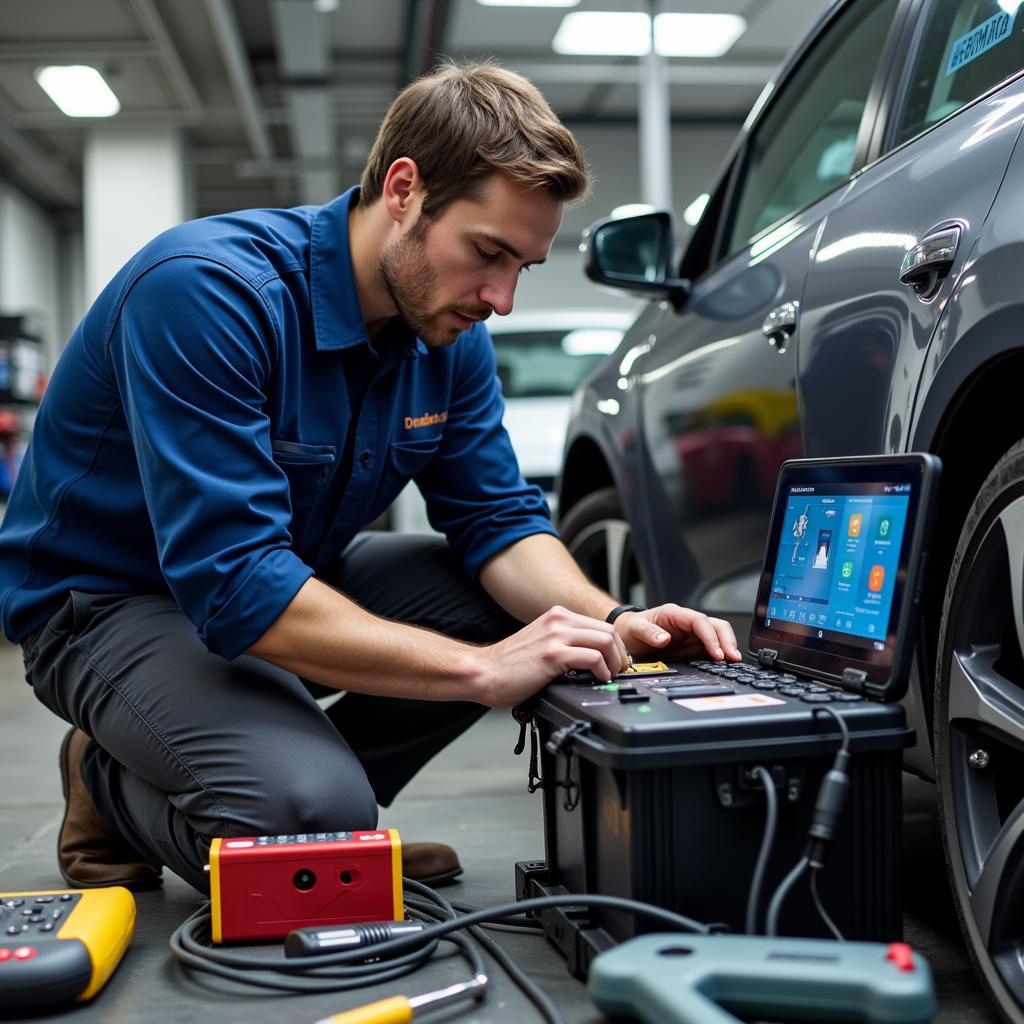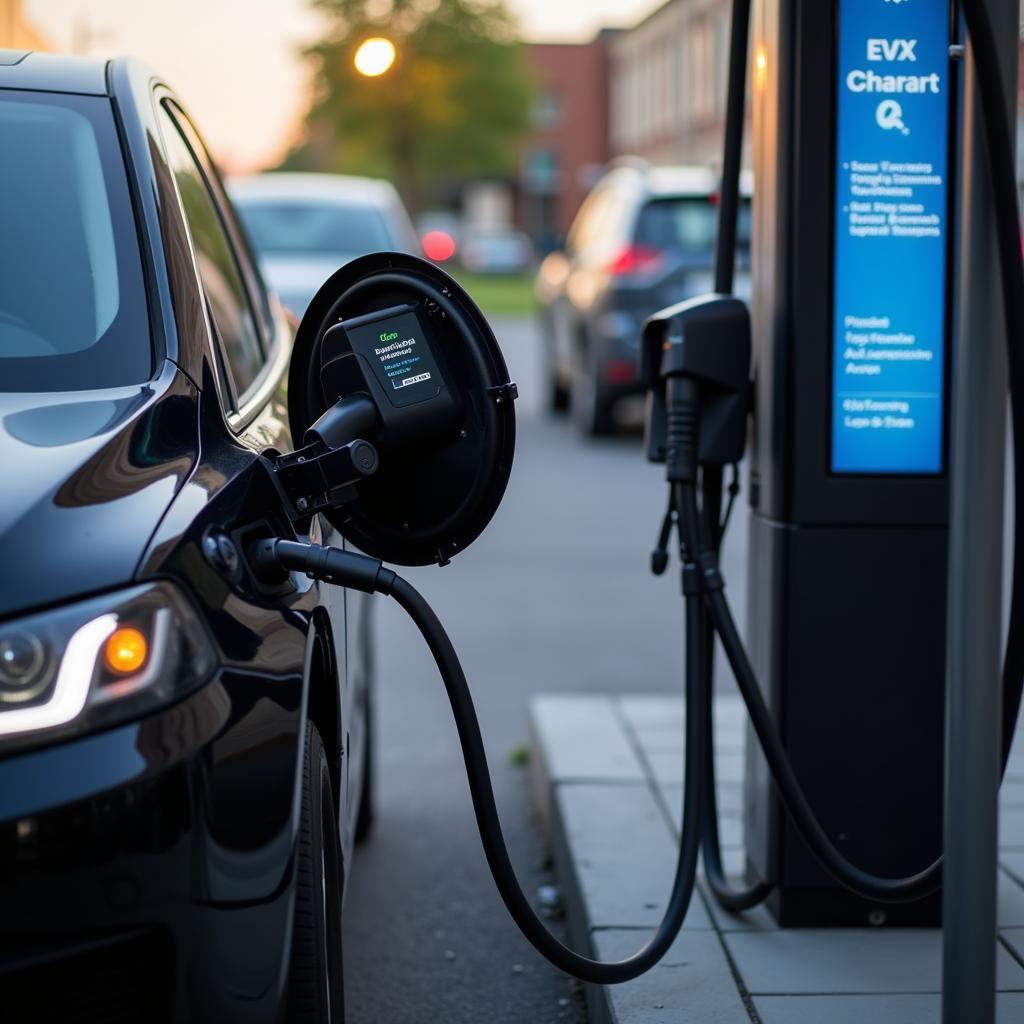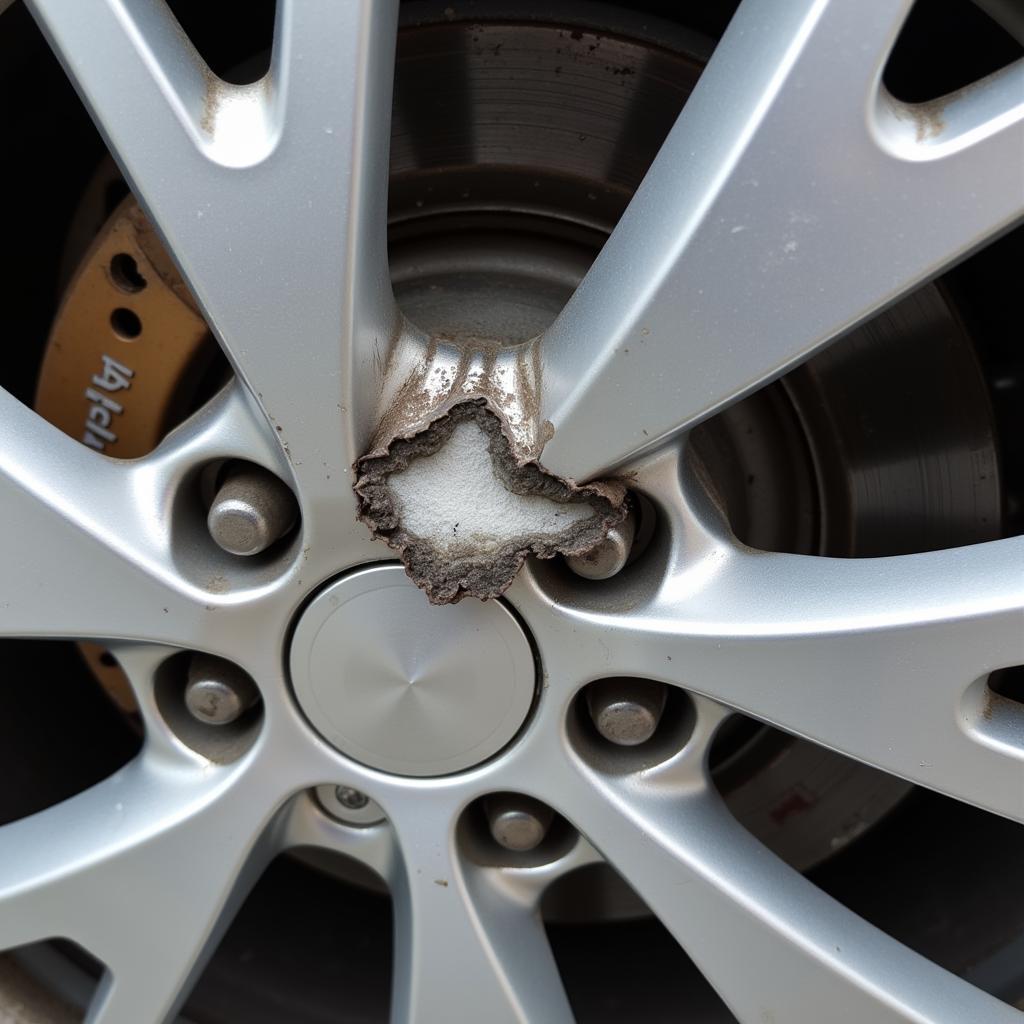Electric vehicles are becoming increasingly popular, but as with any new technology, there are bound to be some teething problems. If you’re experiencing a problem with your EV car, don’t panic. This comprehensive guide will walk you through some of the most common issues and help you get back on the road.
 Common EV Car Problems
Common EV Car Problems
Common Problems with EV Cars and How to Solve Them
While EVs offer numerous advantages, understanding common issues can help you address them proactively. Here’s a breakdown of frequently encountered problems:
1. Battery Issues
The battery is the heart of your EV, and unsurprisingly, it’s often the source of problems.
- Reduced Range: Over time, EV batteries degrade, leading to a reduced driving range. This is a natural process, but extreme temperatures and fast charging can accelerate it. If you’re noticing a significant drop in range, it might be time to have your battery checked by a professional.
- Slow Charging: This can be caused by a number of factors, including a faulty charging cable, a problem with the car’s charging port, or an issue with the power source. Try using a different charging cable and make sure the charging port is clean and free of debris. If you’re still having problems, you may need to consult an electrician or your car’s manufacturer.
- Battery Warning Lights: If a battery warning light appears on your dashboard, it’s crucial to get it checked out immediately. This could indicate a serious problem that needs to be addressed by a qualified technician.
2. Electrical System Malfunctions
EVs have complex electrical systems, and a malfunction can lead to a variety of problems.
- Software Glitches: Like any computer, EVs rely on software, which can sometimes experience glitches. These can often be resolved with a simple software update from the manufacturer.
- Sensor Errors: EVs use sensors to monitor various systems, from battery temperature to tire pressure. A faulty sensor can trigger warning lights and affect the car’s performance.
 EV Car Charging Issues
EV Car Charging Issues
3. Climate Control Problems
EVs use electric heaters and air conditioners, which can draw significant power from the battery.
- Reduced Range in Extreme Temperatures: Using the climate control system extensively in hot or cold weather can significantly impact your EV’s range.
- Heating System Malfunctions: In some cases, the electric heating system may malfunction, leaving you without heat. This is a serious issue in cold climates and requires professional attention.
For those interested in comparing the challenges of EVs with hybrids, our article on the “biggest problem with hybrid cars” provides valuable insights.
Tips for Preventing EV Car Problems
Prevention is always better than cure. Here are some tips to help you avoid common EV car problems:
- Stick to a Regular Charging Schedule: Avoid fully depleting the battery and charging it to 100% too often.
- Use Moderate Temperatures for Charging: Extreme heat or cold can affect battery performance.
- Keep Your Software Updated: Manufacturers often release software updates that address known issues.
- Schedule Regular Maintenance: Just like gasoline cars, EVs require regular maintenance to keep them running smoothly.
Understanding common issues like those encountered with car evaporation systems, as discussed in our article on “why do cars have evap problems“, can further enhance your automotive knowledge.
When to Seek Professional Help
While some EV car problems can be solved with simple troubleshooting, others require the expertise of a qualified technician. If you’re experiencing any of the following, it’s best to seek professional help:
- Warning Lights on Your Dashboard: Don’t ignore warning lights. They are your car’s way of telling you something is wrong.
- Sudden Loss of Power: This could be a sign of a serious electrical problem.
- Unusual Noises: Any unusual noises coming from your EV should be investigated.
- Fluid Leaks: While rare, fluid leaks can occur in EVs and should be addressed immediately.
Conclusion
EVs represent the future of transportation, but like any technology, they come with their own set of challenges. By understanding the common problems with EV cars and following the tips outlined in this guide, you can help keep your EV running smoothly for years to come. If you encounter persistent issues, don’t hesitate to reach out to the experts at AutoTipPro for assistance. You can contact us at +1 (641) 206-8880 or visit our office at 500 N St Mary’s St, San Antonio, TX 78205, United States. We’re here to help you navigate the evolving world of automotive technology.





Leave a Reply